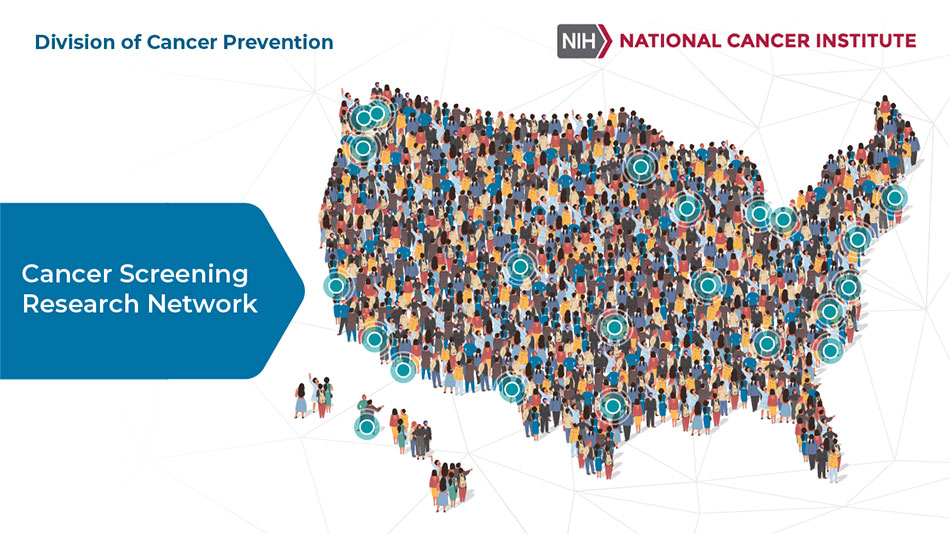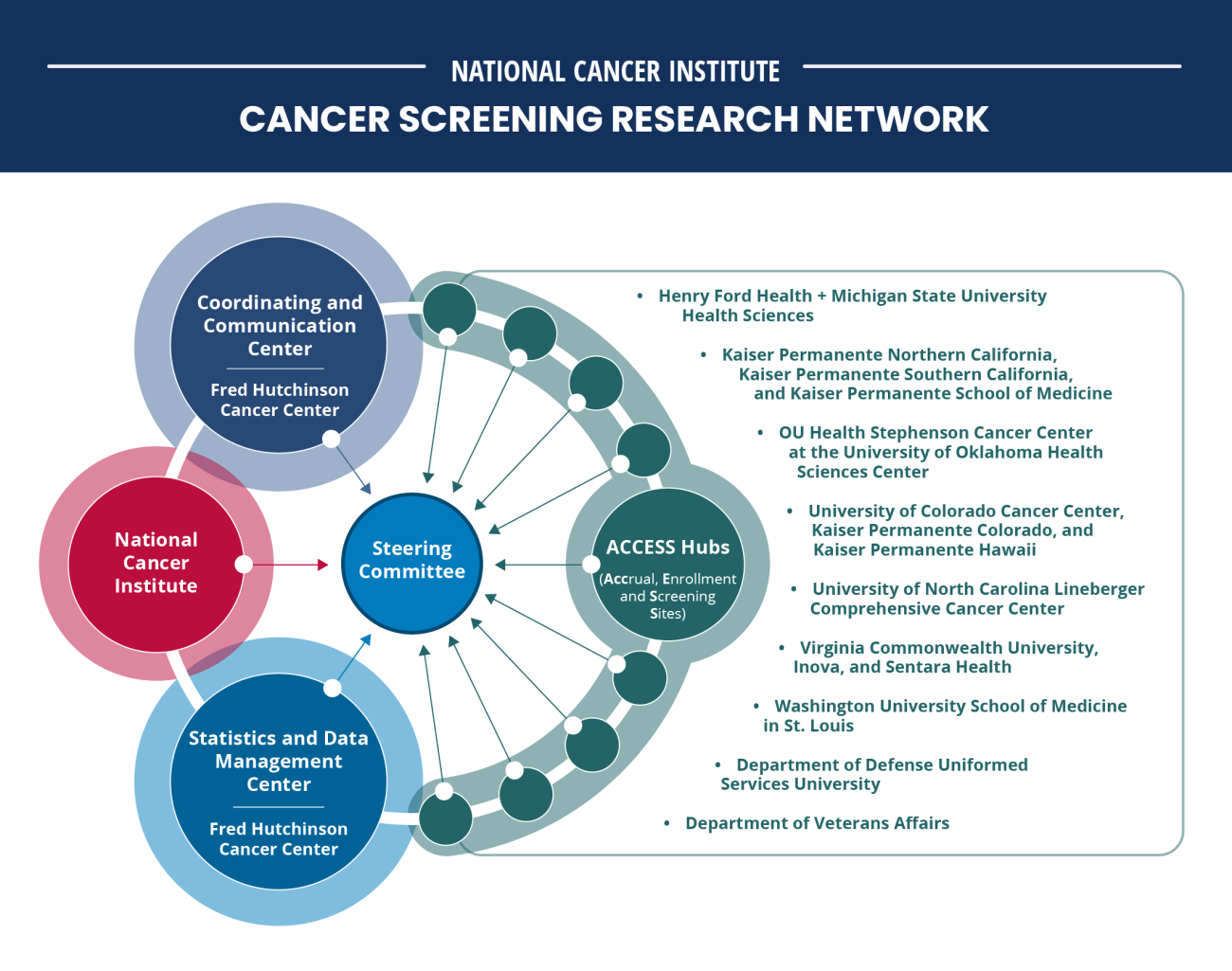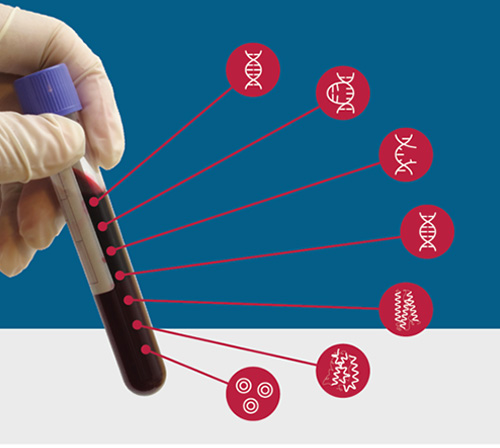Cancer Screening Research Network
Studying Better Ways to Prevent Cancer Together
Henry Ford Health is part of a national research network studying new ways to screen for cancer. This work is focused on learning whether tools like a simple blood test can help detect cancer earlier when it may be easier to treat. These studies are happening in healthcare settings across the country, with this opportunity available here in our community.
What is the Cancer Screening Research Network (CSRN)?
The Cancer Screening Research Network (CSRN) is supported by the National Cancer Institute (NCI). This network brings together doctors, researchers, healthcare systems, and community leaders from across the country to study new ways to detect cancer earlier and improve screening tools for everyone.
The network includes:
- A Coordinating and Communications Center and a Statistics and Data Management Center, both led by Fred Hutchinson Cancer Center, which helps organize communications, research planning, and data collection for the entire study.
- A Community Advisory Board made up of patients, doctors, medical ethicists, insurance representatives, and other leaders who review study materials and help ensure the work reflects the needs of real communities.
- Nine Access Hubs — hospitals and healthcare systems that are leading research in their local areas.
These hubs are:- Henry Ford Health + Michigan State University Health Sciences
- Kaiser Permanente Northern California, Kaiser Permanente Southern California, Kaiser Permanente School of Medicine, Kaiser Permanente Colorado, and Kaiser Permanente Hawaii
- OU Health Stephenson Cancer Center at the University of Oklahoma Health Sciences Center
- University of Colorado Cancer Center
- University of North Carolina Lineberger Comprehensive Cancer Center
- Virginia Commonwealth University, Inova, and Sentara Health
- Washington University School of Medicine in St. Louis
- Department of Defense Uniformed Services University
- Department of Veterans Affairs
How the CSRN Works
The Cancer Screening Research Network (CSRN) is a national research network created by the National Cancer Institute. It is not a single study. Instead, it provides the structure needed to carry out large cancer screening studies across many health systems.
CSRN brings together hospitals, researchers, and community members to study how new screening tools may work in everyday care settings. It allows researchers to test these tools in ways that reflect real-life healthcare experiences, rather than in research labs.
A major focus of the research is on multi-cancer detection (MCD) tests. These are blood tests that look for signals that cancer might be present somewhere in the body. These tests are still being studied. They do not diagnose cancer and are not approved for regular medical use. If something unusual is found, a follow-up test(s) would be needed.
The Vanguard Study is the first major study being performed by the CSRN. It is helping researchers learn how MCD tests may work in the real world, and how people experience this type of screening over time. More studies may be added in the future.
Why This Research Matters for Michigan
We know that finding cancer early gives people a better chance of treatment and recovery. But many cancers still do not have standard screening tests. The Cancer Screening Research Network (CSRN) is studying whether simple blood tests can help detect signs of cancer before symptoms appear.
This kind of research is not yet available in most places. By taking part in it now, we have an opportunity to help shape how this type of screening could be used in everyday care in the future. Henry Ford Health is making sure that people in Michigan have a voice in what comes next for cancer prevention. What we learn from this study could help improve how care is delivered here and in other communities across the country. It is one way to help ensure that Michigan is part of what may shape tomorrow’s cancer prevention and early detection strategies.
Henry Ford Health’s Role in CSRN
Henry Ford Health is one of nine regional Access Hubs participating in the Cancer Screening Research Network (CSRN), a national effort led by the National Cancer Institute. We are helping bring this research into real healthcare settings where people already receive care. That includes offering the opportunity to join studies during regular appointments or follow-up visits in our medical facilities.
This work is part of the Cancer Moonshot initiative, which aims to improve early detection and reduce the impact of cancer across the United States. Henry Ford Health has a long-standing history of partnering with the National Cancer Institute to lead major cancer prevention studies, like the Connect for Cancer Prevention Study. We also have expertise working in other early cancer detection studies like the PATHFINDER Study and PATHFINDER 2 Study.
Our continued partnership with the National Cancer Institute (NCI) reflects our commitment to building solutions that are grounded in evidence and centered around the people we serve. It also means our health system and our community are part of shaping how cancer screening research is designed, tested, and delivered. By being involved in studies like CSRN, we help ensure that future tools for preventing cancer are informed by the needs, care experiences, and priorities of people in Michigan.
Active Studies at Henry Ford Health
Vanguard Study
The first study offered through the Cancer Screening Research Network at Henry Ford Health is called the Vanguard Study. This study is helping researchers explore whether a blood test could be used to support earlier detection of cancer in the future. It looks at how these types of tests may work in everyday care settings and how patients respond to the process.
Taking part in a study like this helps bring knowledge back to the community and supports long-term efforts in cancer prevention.
Learn more about the Vanguard Study
Frequently Asked Questions
-
What is the Cancer Screening Research Network?
The National Cancer Institute (NCI) launched the Cancer Screening Research Network (CSRN) in February 2024 to evaluate emerging technologies for cancer screening. The CSRN conducts rigorous, multi-center cancer screening trials with large populations in a variety of health care settings with the ultimate goal of reducing cancer-related illnesses and deaths.
-
What are MCDs?
Multi-cancer detection (MCD) tests in this study are designed to detect biological substances released into the bloodstream by cancer cells. Each MCD test screens for several kinds of cancers. No MCD test screens for every type of cancer. For this study, the cancers being screened for are listed in the consent form that you can review with the study team.
It is important to know that as cancer screening tests, MCDs are not perfect. This means sometimes a test will come back abnormal (or positive) when in fact there is no cancer. In other cases, the MCD test will read negative when cancer is present. When a test comes back abnormal (or positive), further testing will be needed to find out if cancer is present.
-
Are Multi-Cancer Detection (MCD) tests available to the public?
Multi-Cancer Detection (MCD) tests are still being studied. The Food and Drug Administration (FDA) has not approved these tests for widespread use. The goal of the Cancer Screening Research Network is to help us learn more about these tests and how they might be used in the future.
-
Why is this type of research important?
Many cancers are not found until they are more advanced and harder to treat. Also, not all people have the same access to screening. This kind of research may help find better ways to screen for cancer and include people from different backgrounds. That could lead to earlier treatment and better health for more people.
.svg?iar=0&hash=F6049510E33E4E6D8196C26CCC0A64A4)

/hfh-logo-main--white.svg?iar=0&hash=ED491CBFADFB7670FAE94559C98D7798)





